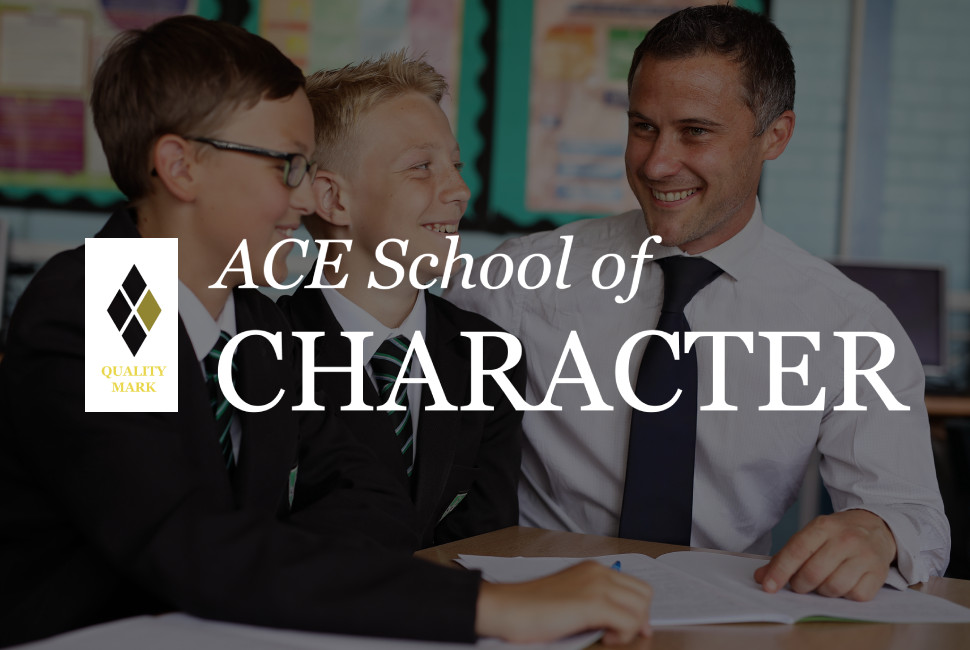
Working with Governors
The governance model of the Character Education Trust consists of ‘Members’, a ‘Board of Trustees’ and ‘Local Governing Bodies’. These work alongside a ‘Chief Executive Officer’, a ‘Accounting Officer’ and a ‘Chief Financial Officer’.
Members
The Members are akin to the shareholders of a company. They have ultimate control over the academy trust, with the ability to appoint Trustees and the right to amend the trust’s articles of association. The Members hold an Annual General Meeting once a year, but can also meet on other occasions as needed.
Board of Trustees
The Members have appointed a Board of Trustees with responsibility for managing the business of the Trust. The Board places its focus on finance and the educational standards of the Trust. It has two sub-committees, responsible for finance and educational standards. The Board meet regularly to review the progress of all the Trust’s schools, to ensure that they are receiving the support they need and to set direction for the future.
Local Governing Bodies
The Board places high value on the impact of effective governing bodies and therefore delegates significant responsibilities to a Local Governing Body (LGB) for each school. This allows the day to day effectiveness of the school’s provision for its students to be monitored in more detai. This includes matters such as strategies to improve teaching and outcomes, success in closing the gap in performance for disadvantaged students and the implementation of statutory requirements on matters such as Special Educational Needs and safeguarding. The Local Governing Body meets at least three times a year. Its members also carry out regular visits to the school to meet staff, students and discuss developments in certain key areas.
The Local Governing Body includes members of the local community appointed by the Trustees, as well as parent and staff governors. A list of governors and details of their interests and attendance can be found on each school’s website.
Chief Executive Officer
The day-to-day work of managing and growing the Trust is the responsibility of the Chief Executive Officer (CEO). He is appointed by the Trustees.
Chief Financial Officer
The Board has appointed Nigel Newman as the Chief Financial Officer (CFO), and the Trust’s Company Secretary role is fulfilled by the Clerk to the Trustees, Rachel Martin.
Members
The Character Education Trust is a charitable company (a company limited by guarantee and an exempt charity) which exists for the provision of education.
It has three members:
Mrs S.Smith
Chair of the Trust Board, Ex Headteacher, Inspector of International Schools, experienced school governor.
Mr P. Broszek
Experienced school governor, has had over 30 years’ experience as an electrical, instrumentation and control engineer within the pharmaceutical industry. He is currently employed by Cory Environmental in the Borough of Bexley.
Mrs Clare Gilhooly
Ms Gilhooly originally trained as a Youth and Community Worker and has subsequently worked in a variety of education and community based charities. Most recently, she has worked within grant making trusts often with an education focus.
The Board of Trustees
The Board is chaired by Mrs Sheila Smith. The Trustees are Sheila Smith (Chair) – Education, Mark Reeve, Asad Malik, Linda Blumsum, Regina Metzler, Andrea Clarke and David Day.
The Trust is seeking to appoint Trustees with the following experience:
Experience
HR/Employment Law
Marketing
Charity Leadership or Management
School Leadership
Recruitment to our Trust Board is based on three key areas:
- Passion for the vision of the Trust
- Skills and experience that can help move the Trust and the schools forward
- The required character to work in line with our values and in the spirit of collaboration and partnership
Trustees’ responsibilities and duties
The Companies Act 2006 applies to the Board of Trustees and imposes a general duty on them to
- act within their powers
- promote the success of the company
- exercise independent judgement
- exercise reasonable care, skill and diligence
- avoid conflicts of interest
- not to accept benefits from third parties
- declare interest in proposed transactions or arrangements.
The Board’s main responsibilities are:
- To set and communicate a strategic vision for the Trust and to plan strategically for its future
- To set and communicate a strategic vision for the Trust and to plan strategically for its future
- To appoint and hold to account the CEO for the implementation of the Trust’s overall performance, and for the discharge of the role of Accounting Officer
- To ensure the requirements of the Academies Financial Handbook (AFH) in force at the time are being fully met,
- To ensure that the terms of the Funding Agreement are being fully met.
- To ensure that all strategic decisions are taken in the light of the Trust’s charitable objects.
- To ensure that the Trust undertakes prudent financial planning and remains solvent at all times
- To appoint, train and induct local governors, monitor the work of local governing bodies (LGBs) for each member academy and to delegate roles and responsibilities to those LGBs according to their capacity.
- To set and monitor a budget for the Trust
- To set end of key stage pupil achievement targets for each school, overall and by significant pupil groups
- To ensure that the health and safety and safeguarding obligations of the Trust are met
- To ensure that all conflicts of interest are declared and documented
The Accounting Officer role
The CEO is also the Accounting Officer for the Trust, and as such has a range of legal responsibilities in particular for:
- financial transparency and probity in the use and management of public money
- achieving value for money · ensuring feasibility of plans and decisions
- annual financial reporting along with a range of other duties defined by the DfE, including that relating to the Prevent duty and safeguarding more widely.






